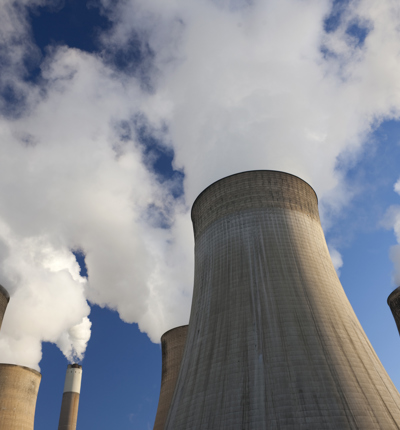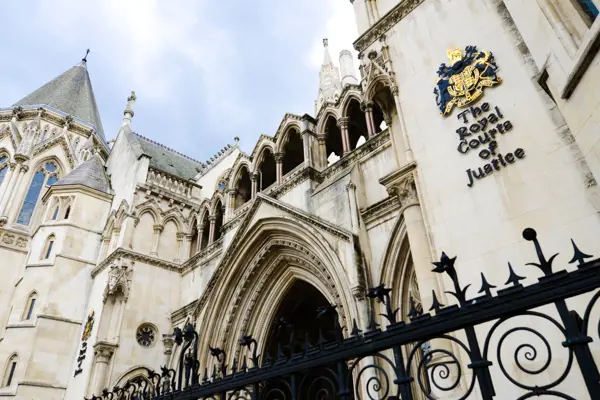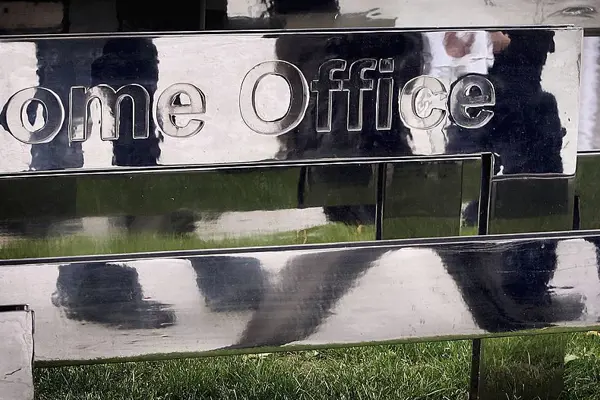
Legal challenge issued over decision to allow power station in Teesside
An application for judicial review has been filed to challenge the development of a gas power station with carbon capture technology on Teesside. It is claimed that the power station will hinder rather than help delivering the Government’s net zero commitment, even though it is being referred to as “Net Zero” Teesside by the developers and the Secretary of State.
Posted on 13 May 2024
A forensic review of the developer’s calculations of the amount of greenhouse gas emissions that would be emitted from the development found that it had failed to take into account certain aspects of the project, meaning there would be significantly more greenhouse gas emissions produced than originally predicted.
The review was carried out by environmental scientist Dr Andrew Boswell who found that the developer had failed to consider upstream emissions – emissions associated with the supply and transportation of gas, including fugitive emissions of methane – and that when these were accounted for, the development would not be compatible with the UK’s net zero commitments.
Despite the Secretary of State accepting the revised calculations showing that greenhouse gas emissions would have a “significant adverse impact”, which the government’s own chosen methodology classifies not to be in line with net zero targets, the development consent order for the power station in Teesside was still granted in February 2024.
Dr Boswell is represented by Leigh Day in his application for judicial review of the decision to grant consent for the power station. His lawyers will argue that there was not a rational or properly reasoned explanation for the decision.
The proposed power station would be built by Net Zero Teesside (NZT) Power and would generate electricity with a combined cycle gas turbine (CCGT). The development of the power station would also include carbon capture technology, which sees carbon dioxide created by burning gas for the power station funnelled into a geological storage site in the North Sea.
Despite the developer’s claim that at least 90% of the generated emissions will be captured, the total greenhouse gas emissions from operating the projected development over 25 years, were calculated by Dr Boswell as being in the region of 20.3 million tCO2e (tonnes of carbon dioxide equivalent), which is significantly greater than the Government’s initial assessment of 5.9 million tCO2e (shortfall 14.4 million tCO2e). NZT claimed these emissions were only a ‘minor adverse’ effect, but the Secretary of State agreed with Dr Boswell’s calculations and assessed the scheme as having a ‘significant adverse impact’.
The grounds of the claim are:
- The decision to grant development consent does not give legally adequate reasons to support the conclusion that the development will help deliver the Government’s net zero commitment by 2050 and will be consistent with the Government’s climate change and decarbonisation policies.
-
There is a demonstrable flaw in the reasoning which led to the decision, in that the Secretary of State assessed the development as having significant adverse effects by virtue of its greenhouse gas emissions, but went on to find that the development “will help deliver the Government’s net zero commitment”.
-
The Secretary of State claimed to take into account the increase in the contribution of the development to the power sector carbon budget targets, but did so without having sufficient information to understand the impact of the scheme on those targets and failing to make reasonable inquiry for that information which existed within her own department.
-
The Secretary of State did not reach her own view on the need for the development despite being required to do so, and failed to give legally adequate reasons for attaching substantial weight to the need for the development.
Dr Andrew Boswell said:
“The developers of this power plant initially failed to come clean on the methane emissions in the gas supply chain. Methane is a powerful and deadly greenhouse gas which, along with carbon dioxide, is driving global heating. Fitting the power plant with a carbon capture unit and calling it “Net Zero”, does not constitute a free pass for ignoring the significant impact of its overall emissions. In these times of climate emergency every unit of greenhouse gas emissions matters and should be properly assessed.”
Leigh Day solicitor Rowan Smith said:
“Analysis from our client shows that the operational emissions of the power plant will hinder rather than help the delivery the Government’s net zero commitment and decarbonisation of the power sector. Despite this, the Government has still gone ahead with its decision to grant a development consent order for the project. When presented with these arguments and revised carbon emissions calculations, we hope that the Court will accept the judicial review and allow the case to progress.”

Friends of the Earth wins High Court fight to make government redraft plans to keep UK on track to meet Net Zero
The government must again redraft its strategy to keep the UK on track to meet Net Zero after Friends of the Earth won a High Court ruling that the current plans are unlawful.

Government concedes that former Environment Secretary unlawfully granted gamebird release licences for protected areas against Natural England advice
The Government has conceded a claim by environmental group Wild Justice alleging the unlawful grant of licences for the release of gamebirds in and around two protected habitats.


